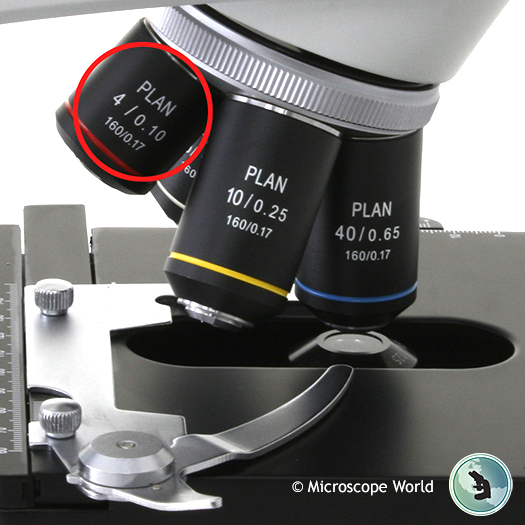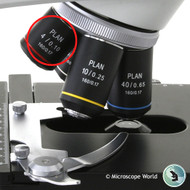What Microscope Magnification Should I Start With?
Sep 4th 2019
What Objective Magnification Should I Start With?
An important point to understand when working with compound microscopes and their objective lenses is that the field of view changes as the magnification changes. Typically a lower magnification objective lens will have a larger field of view, and a higher magnification objective lens will have a smaller field of view. For more information on how magnification affects the field of view read this article on microscope magnification and field of view.
Is More Microscope Magnification Better?
It is easy to think that more microscope magnification will result in seeing more detail and a better image. However, keep in mind that more magnification means you will see a much smaller area on your sample. Additionally if you get too much magnification (anything over 1000x), you will end up with empty magnification and poor resolution. So no, more microscope magnification is not necessarily better.
Which Microscope Objective Should I Start With?

Start Low!
Since the 4x objective lens has the least magnification, but a larger field of view, it allows for more of the specimen to be seen, as well as locating the part of the sample you wish to view. This in turn makes it easier to focus on the sample. Most microscope objective lenses are parfocal, meaning once you have one objective lens in focus, all other objectives should be in focus as well as you move from 4x to 10x, etc. Occasionally, when switching to the highest magnification lens you may need to make a slight adjustment to the fine focus, but this is not required when you start out with the 4x lens. So starting your microscopy viewing at the lowest objective is usually the most simple way to start. You can certainly use another magnification to begin, but it will likely take more time and can be a bit discouraging if you just can't seem to locate the area of your specimen you wish to view, especially if you are a microscopy novice.
If you have any questions about what microscope magnification you might need to view your desired sample, contact Microscope World and we will be happy to help.





